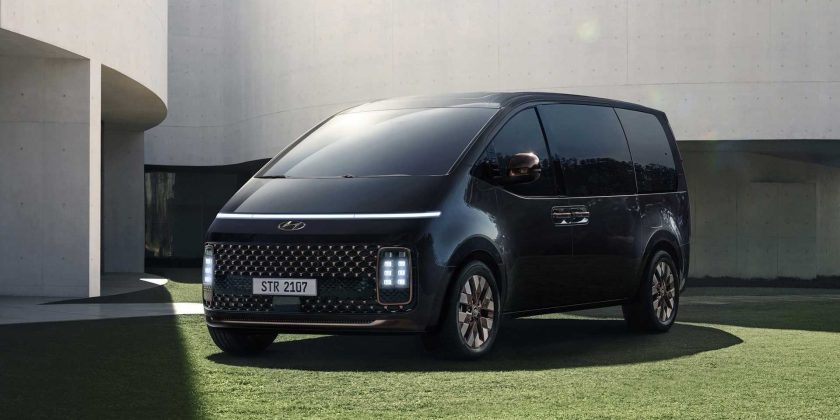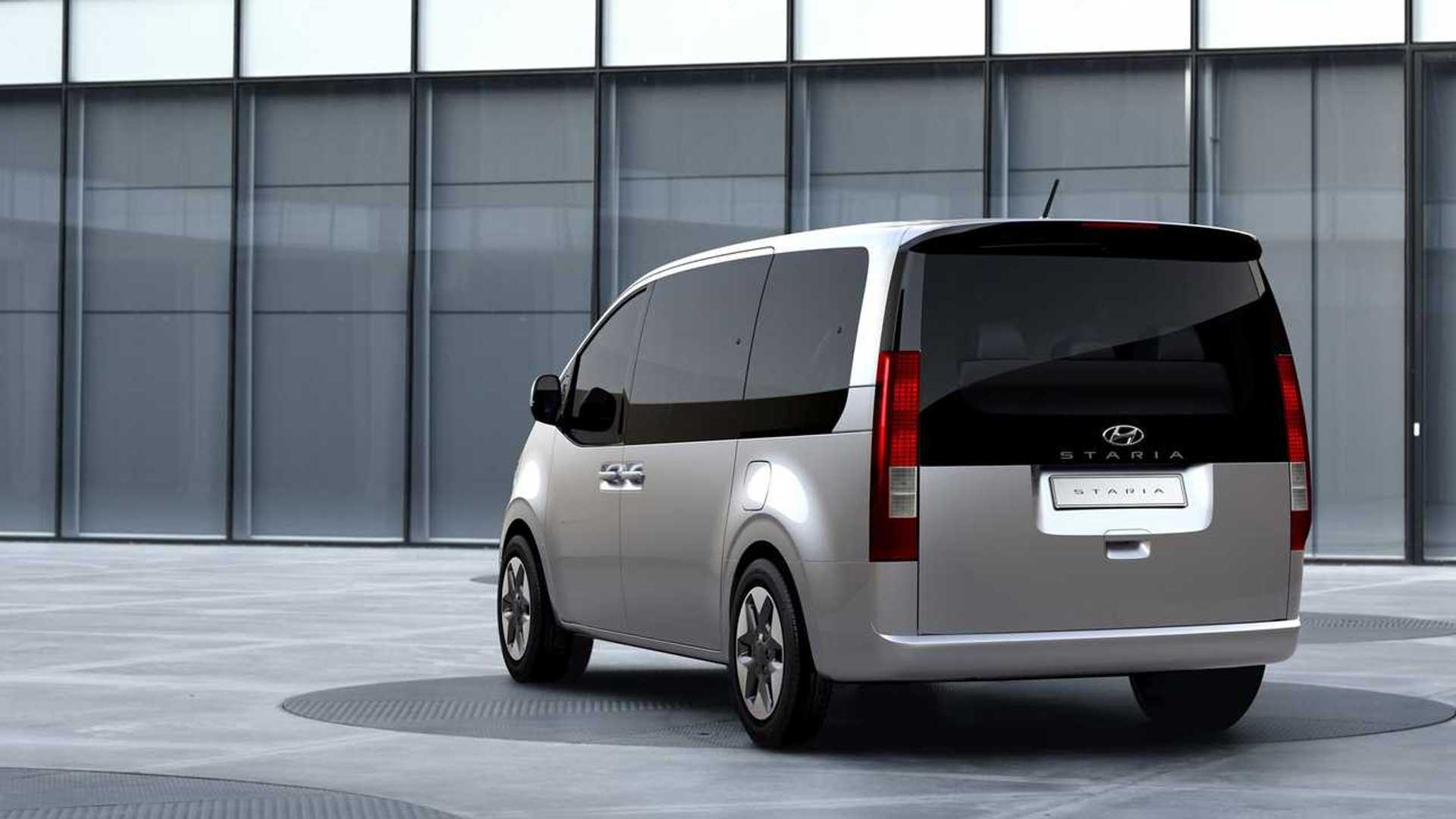Available with 2 to 11 seats, the snazzy minivan is coming to Europe.
When Hyundai unveiled the Staria about three weeks ago, it barely scratched the surface in terms of technical specifications. Thankfully, the minivan is making the headlines once again to reveal all the nitty-gritty hiding underneath that surprisingly cool (for a minivan) skin. Before we dive into details, it’s worth mentioning right from the start the people-mover is coming to Europe.
Available with two to 11 seats, the new Staria is 5,253 millimeters (206.8 inches) long and 1,997 mm (78.6 in) wide, with a massive wheelbase of 3,273 mm (146.5 in). It stands 1,990 mm (78.3 in) tall for the passenger version and 2,000 mm (78.7 in) for the commercial van. Go for the two- or three-seat version engineered for business use and the total cargo capacity nearly reaches a whopping 5,000 liters (176.5 cubic feet). Hyundai says it has tweaked the commercial model to fit three Euro pallets.
Gallery: 2021 Hyundai Staria
The Euro-spec minivan is going to be sold exclusively with a 2.2-liter turbodiesel engine producing 175 horsepower and 431 Newton-meters (318 pound-feet) of torque. Customers on the Old Continent will be able to pick from either a six-speed manual gearbox or an eight-speed automatic. In other markets, the Staria will also get a naturally aspirated 3.5-liter engine rated at 268 hp and 331 Nm (244 lb-ft).
Hyundai touts the Staria as a sophisticated minivan by fitting a multi-link independent rear suspension and tweaking the powertrains for lower noise, vibration, and harshness (NVH) levels. Even though it’s boxy to maximize available space inside, the upper part of the body has been aerodynamically optimized to lower the drag coefficient and improve efficiency, further boosted by tinkering with the underbody.
In select markets, the Staria will be available in purpose-built configurations in the following years. These will vary from limousines (similar to Kia Carnival Limo?) and ambulances to camper conversions and eco-friendly variants, with the latter likely to include a fuel cell hydrogen derivative. Meanwhile, the regular versions of the minivan are scheduled to go on sale in the second half of 2021 with eight available exterior colors and five interior themes, including two-tone finishes.
Source:
Hyundai
Source: Read Full Article







